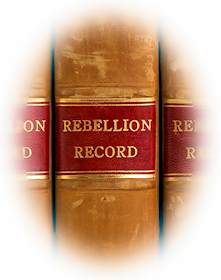–The Southern Baptist Convention, in session at Savannah, Ga., adopted a report of their committee on the state of the country, in which they hold “that the States once combined on this continent can no longer live together as one confederacy;” that the movement of Northern soldiers to sustain the Government is “an invasion designed to destroy whatever is dear in the heroic traditions of the South.” They tender to the government at Montgomery their sympathy and confidence, and recommend the churches of the South to observe the first and second days of June as days of fasting, humiliation, and prayer. This report borrows additional interest from the fact that it comes from the pen of Dr. Richard Fuller of Baltimore, who made himself conspicuous, three or four weeks ago, as a member of that committee of young Christians who waited upon Mr. Lincoln to request that the Government of the United States would reconsider its order for the troops needed at Washington to come through Maryland.–(Doc. 159.)
–A Union meeting was held in Martinsburgh, Berkeley county, Va. The gathering was large, and the greatest enthusiasm prevailed. Strong resolutions were adopted, and a protest entered against the warlike attitude which Virginia had assumed in opposition to the General Government. Eastern Virginia is not, as has been represented, unanimous for secession.–Newark (N. J.) Advertiser, May 22.
–Six hundred troops from Georgia and Alabama arrived at Pensacola, the advance guard of 2,000 ordered there by General Bragg.–Mobile Advertiser, May 15.
–A portion of the Federal troops lately stationed at the Relay House on the Baltimore and Ohio Railroad, entered Baltimore. They arrived at the Camden station at seven and a half o’clock in the evening, disembarked in good order, and marched from the dépôt, piloted by Col. Hare and Capt. McConnell, down Lee street to Hanover, and thence to Montgomery, to Light, to Hamburgh, to Federal Hill, and, moving to the high ground surrounding the Observatory, stacked arms, and made preparations for rest.
The force was under command of Gen. Butler, and composed of a portion of the Boston Light Artillery, Major Cook; a strong detachment of the Sixth Massachusetts Regiment, Col. Jones; and about five hundred of the Eighth New York Regiment, Lient.-Col. Waltenburgh.
On the route to the Hill, the streets were thronged with people, who greeted the military with cheers at every step, the ladies at the windows and the doors joining in the applause by waving their handkerchiefs. Arrived at their destination–which was unknown to the troops until they reached the place–they began to bestow themselves as comfortably as possible in the absence of tents. Their operations were seriously interrupted by a soaking shower that completely deluged the place, but, having become accustomed to camp life, they seemed to pay little attention to it. At a late hour large fires were built, somewhat dispelling the gloom of the place, and rendering the atmosphere more comfortable. The forces will be largely reinforced, and additional force is expected, who will immediately take possession of the commanding heights around Baltimore. Public Schoolhouse No. 10, corner of Warren and William streets, was taken possession of by the troops for the purpose of storing away their baggage and other articles likely to be injured by being exposed to the weather.–Baltimore Clipper, May 14.
–Judge Giles, of Baltimore, having issued a writ of habeas corpus, directing the delivery of a soldier at Fort McHenry, Major Morris, the commander at that post, refused to obey the writ, and gave his reasons in a published letter.–N. Y. Evening Post, May 14.–(Doc. 160.)
–Early this morning the steamer Pawnee was moored off the city of Alexandria, Va., so that her guns and mortars command the town. She has several of James’s rifled cannon on board, which will throw grape, shell, hot shot or solid into any part of the town, and far beyond into the camp of an army that may be so imprudent as to pitch their tents in the suburbs of the city.–N. Y. Herald, May 14.
–The Virginia Union Convention assembled at Wheeling, and organized, with Dr. J. W. Moss in the chair.–Idem.
–Senator Bayard, of Delaware, issued an address to his constituents, called forth by the denunciations against him on his return from the South. He narrates the history of his journey, gives the motives which induced him to undertake it, and denies having been in consultation with the rebels in Montgomery. He proposes to rest on his past course, his general character, and his future life, and declares that he shall resign as soon as he is convinced that there is to be a war.–(Doc. 161.)
–Mrs. Sarah Sanford, a native of New Haven, Conn., and a graduate of the South Hadley Female Seminary, but for some time past an assistant teacher in a New Orleans Grammar School, was stripped naked and tarred and feathered in Lafayette Square, New Orleans, in the presence and amid the applause of an immense crowd of people. The assigned reason was abolition sentiments, expressed to her pupils, and by them repeated to their parents. Dr. Charles McQueen, recently from New Orleans, was an eye witness to the transaction.–Buffalo Express.
